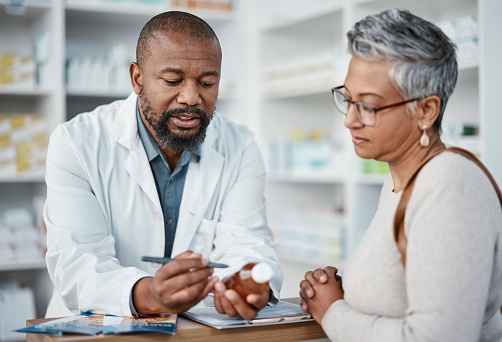Educate Before You Medicate

Educate Before You Medicate: Adverse Drug Reaction Awareness
“Educate Before You Medicate” is a phrase that has become part of today’s lexicon. In honor of August being Stevens-Johnson Syndrome Awareness Month, Pegalis Law Group, LLC is taking a closer look at severe adverse drug reactions, including their causes, symptoms, and frequency. Learn more about how you can become a proactive patient for yourself and loved ones who may take medications.
What Are Severe Adverse Drug Reactions (ADRs)?
Adverse drug reactions (ADRs) are unwanted or harmful side effects experienced after taking a medication or receiving a vaccination. These reactions can range from mild to lethal, causing hospitalizations, permanent damage, or even death. Severe life-threatening reactions may include liver failure, abnormal heart rhythms, and serious allergic reactions that could lead to disability, birth defects, and more. Common examples of severe adverse drug reactions include anaphylaxis, Stevens-Johnson Syndrome (SJS), Toxic Epidermal Necrolysis (TEN), and Drug-Induced Liver Injury (DILI).
How Often Do Severe Adverse Drug Reactions Occur?
About 5-10% of patients experience some form of adverse drug reaction during medication use. Severe reactions occur less frequently, but according to the U.S. Food and Drug Administration (FDA), there were over 1.25 million severe adverse events reported in 2022, with nearly 175,000 deaths. Severe adverse drug reactions are one of the leading causes of death in the United States. As many as 10-20% of hospital admissions involve adverse drug reactions, with 10-20% of them being severe. Approximately 25% of adverse drug events are due to medication errors. Certain cancer treatments and antibiotics may be associated with higher ADR risks that may require continuous monitoring to provide safer care.
Common Causes of Adverse Drug Reactions & Symptoms to Watch for
Common causes of adverse drug reactions include allergic reactions, taking more than the prescribed dosage, drug interactions when combining specific medications, and certain health conditions that can increase an individual’s risk of having an ADR when taking medications. Recognizing the signs of an adverse drug reaction is vital to your health and safety. Adverse drug reaction symptoms may include:
- Difficulty breathing or shortness of breath
- Swelling of the face, lips, or throat
- Severe skin reactions (rashes, blisters, or peeling)
- Unexplained fever or chills
- Persistent vomiting or diarrhea
- Sudden changes in heart rate or blood pressure
- Unconsciousness or severe drowsiness
Stevens-Johnson Syndrome Awareness Month: What Is SJS?
August is Stevens-Johnson Syndrome Awareness Month, a time to ensure individuals are familiar with this life-threatening adverse drug reaction. There are a variety of different drugs that can result in SJS. It is common in adults and children who are vulnerable to viral infections. SJS is characterized by a painful rash that can lead to widespread blistering and skin loss. SJS typically begins with flu-like symptoms such as fatigue, fever, or sore throat, followed by a skin rash. If you develop any of these symptoms after taking a prescribed drug you should notify your physician immediately.
This condition can also affect the eyes, mouth, and genitals, leading to vision complications and severe pain. Prompt recognition and medical intervention are crucial, as SJS requires intensive treatment and can lead to long-term health consequences for some patients. Treatment for SJS may vary but generally includes discontinuation of the offending medication(s), supportive care (IV fluids, wound care, and pain management), antibiotics if there are secondary infections, and corticosteroids to reduce the immune response and inflammation.
What Can You Do to Prevent Severe Adverse Drug Reactions?
While not all severe adverse drug reactions can be predicted or prevented, taking specific steps can help minimize your risk:
- Follow Prescriptions – Always take medications exactly as prescribed by your doctor.
- Inform Your Doctor – Provide your doctor with a complete list of your medications, including over-the-counter ones and any health supplements.
- Monitor Your Symptoms – Know potential side effects and monitor for any unusual symptoms.
- Regular Check-Ups – Attend regular medical check-up appointments to detect issues early.
- Report ADRs – If you experience an adverse drug reaction, report it to your healthcare provider immediately for follow-up treatment and monitoring.
We’re on a Mission to Create More Proactive Patients
Understanding severe adverse drug reactions is essential to your safety and well-being when taking medications. As a New York-based personal injury and medical malpractice law firm for 50+ years, Pegalis Law Group, LLC is devoted to keeping the public informed about the potentially severe consequences of these reactions. Visit our website and follow us on YouTube, Twitter, Facebook, and LinkedIn for further healthcare-related insights to create more proactive patients this year and beyond.roactive patients this year and beyond.
